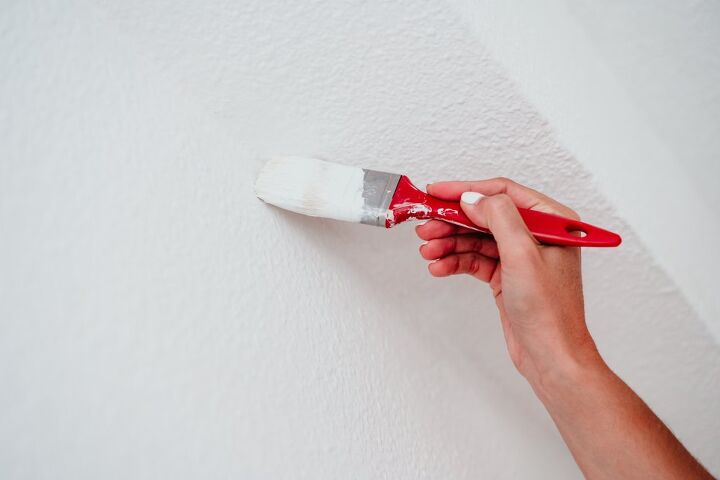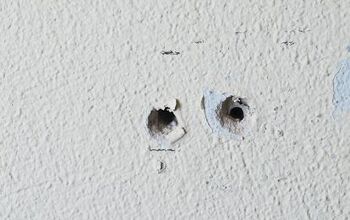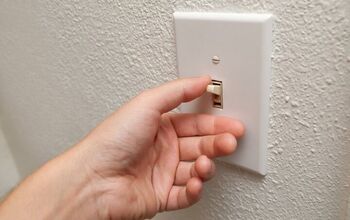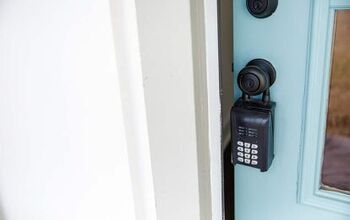Can A Landlord Charge For Touch-Up Paint? (Find Out Now!)

True story: I have a bedroom that has been slightly marked up. I tried to wash it, and the paint literally wiped off on my cloth. It happens. This led me to realize that I needed to get a touch-up on my wall’s paint job. To a point, I was scared that I’d have to cover the charge for the paint. Did you ever feel like you’re stuck in my shoes?
General touch-up paint is considered to be a part of regular maintenance. As long as you did not cause damage to your apartment’s walls or actively scratched the paint, you should not be held liable for the touch-ups.
Have a worry about your paint costs? You’re not alone. To give renters a little help on the subject, we’ve put together a guide on what landlords can and cannot do with your touch-ups.
Do You Need to Hire a Paint Contractor?
Get free, zero-commitment quotes from pro contractors near you.

Before You Begin: Our Legal Disclaimer
While Upgraded Home is an amazing site that can give you all the little details on the best colors to pair your curtains with, things get dicey with legal matters. Being a landlord or a renter means that you have to take your state’s real estate laws into account.
Every single state has its own laws regarding the maintenance and upkeep of apartments. While we can offer some good guidelines about what you should expect, the truth is that you need to look up your local renting laws to find out the truth. If you’re feeling lost, we suggest you talk to a qualified legal professional to help you navigate your disputes.
When Are Landlords Allowed To Charge For Paint Touch-Ups?
Generally speaking, touch-ups or even full wall repaints are not something that landlords can charge for if you’ve lived in your apartment for more than one year. However, there are some situations where touch-ups and paint might get charged to a tenant’s bill:
- You are the reason why your landlord has to paint the apartment. Regular wear and tear is one thing, but if you punched a hole in the wall or painted a mural on it, that’s another.
- You tried to paint the room, but the paint doesn’t match. This is technically your fault. So, it is technically part of damage control for your apartment.
- The touch-up was done as a result of damage that you failed to report to your landlord. Let’s say that you had a flood. You cleaned everything up but mold grew on your wall. You didn’t report the mold. It continued to grow. In this case, your landlord might charge you as this is technically damage from a breach of contract.
How Long Do You Have To Live In An Apartment Before There’s No Charge For Repaints?
This tends to vary from state to state, but it’s important to remember that most builders agree that paint is only going to last three to five years before it needs touch-ups. In fact, many states say that living in an apartment for as little as two years will mean that a landlord can’t charge you for repainting costs.
In California, real estate laws declare that landlords cannot charge for paint jobs after three to five years. This is because interior paints generally reach the end of their “commercial” lifespan every two to five years. However, in other states, laws differ.
Should You Touch Up The Paint On Your Own?
Touching up paint is always kind of a big risk when it comes to the DIY approach. Most landlords would rather If you want to do it yourself, it’s still a smart idea to call up your landlord. This way, you can ask about the particular shade they used and avoid a mismatch.
If you get the green light from your landlord, then you have the right to touch up your paint. Your landlord will probably appreciate it. After all, no one wants to have to take time out of their day to touch up your apartment.
What Should You Do If Your Landlord Tries To Charge You For A Paint Touchup?
This can become a fairly sticky situation, depending on where you live and what the reason for the touchup may be. If you find yourself in this situation, we suggest that you do the following:
- First, see if you can take a photograph of the area in need of a touchup first. Get a picture before you call up your landlord. This is always a good move, especially if you are worried about this happening. On a similar note, you should try to get photos of your apartment before you move out for this reason too.
- Ask your landlord about the reason behind the charge. Sometimes, the landlord may be under the impression that you caused damage to the room when you didn’t. Other times, it could be a matter of a mistake in paperwork. Make sure to get the response in writing!
- Try to get the issue resolved on your own first. Sometimes, setting the record straight is all you need to have an honest chat with your landlord. If you explain the issue, many landlords are fairly cool about waiving the fee. This is especially true if you have proof that it’s just a matter of a mistake on maintenance.
- If that fails, contact a real estate attorney. In many cases, an attorney will be able to tell you whether your landlord is in the wrong. If they are, then you will need to have a legal counsel on your side in court.
How Much Should A Paint Touchup Cost?
One of the slimier things certain landlords do is overcharge for services relating to repairs. A small paint touch-up won’t cost more than $20 in most cases. Large-scale paint jobs can cost $500 to $4000 for a small-to-medium-sized apartment.
In most cases, professional painters will only charge around $1 to $3 per square foot for paint touchups in an apartment. This means that finding a paint bill for hundreds of dollars for a touchup may be a sign of a scam. Should this occur, ask for an itemized bill from the company and lawyer up.
Are Landlords Allowed To Bill You For Paint After You Move?
On your moveout day, your landlords will do an inspection to see what they need to fix. In most cases, this involves a tallying of damage incurred. Damage that is due to regular wear and tear is not going to be billed to you. Repairing that’s just part of being a landlord!
However, landlords will notice if they notice damage that seems like it was intentionally done. Or, damage that shouldn’t be there as a result of regular use. This can include things like spray paint on the walls, pet urine stains on the floor, mold growth, as well as hair dye on the walls.
Damage that has been done through negligence or downright abuse of the unit is considered to be your fault. In this case, your landlord will dock the required amount to fix it from your security deposit. If the damage is beyond what your deposit covered, then you will be fined the rest of it.
Can Renters Insurance Cover Repairs?
If an accident occurred on premises, then you might be tempted to call up your insurance company. Truthfully, you might be able to get them to cover the repairs. It depends on what happened to cause the need for touchups and repainting. Something like a burst pipe, for example, can be covered through an insurance claim.
Do You Need to Hire a Paint Contractor?
Get free, zero-commitment quotes from pro contractors near you.

Related Questions
What should you do if your landlord tries to keep your entire security deposit?
If your landlord tries to keep your entire security deposit, then you have the right to request an itemized bill explaining the charges. Your landlord is legally obligated to provide it. If they are refusing to give a bill for the goods or are offering vague explanations, it may be time to call a lawyer.You have the right to sue for your deposit back if you can prove that you kept the apartment in good condition. Moreover, this could be reason to report your landlord to the authorities.
Can you ask your landlord to repaint your apartment?
This depends on your landlord’s rental agreement as well as the time you have spent in your unit. Generally speaking, you should expect to have a repainting session once every five years or so, at the very least. After all, paint really doesn’t last as long as you think it does.
Are marks and nail holes considered to be wear and tear?
Marks and nail holes are considered to be fairly normal wear and tear, simply because it is a natural part of living in a house. If the holes and scuffs cause damage the goes above and beyond the norm, you may have damage that’s considered to be manufactured.A good rule of thumb would be to ask yourself if it can be fixed with paint and spackle. If it could, you have regular wear and tear.

Ossiana Tepfenhart is an expert writer, focusing on interior design and general home tips. Writing is her life, and it's what she does best. Her interests include art and real estate investments.
More by Ossiana Tepfenhart



























